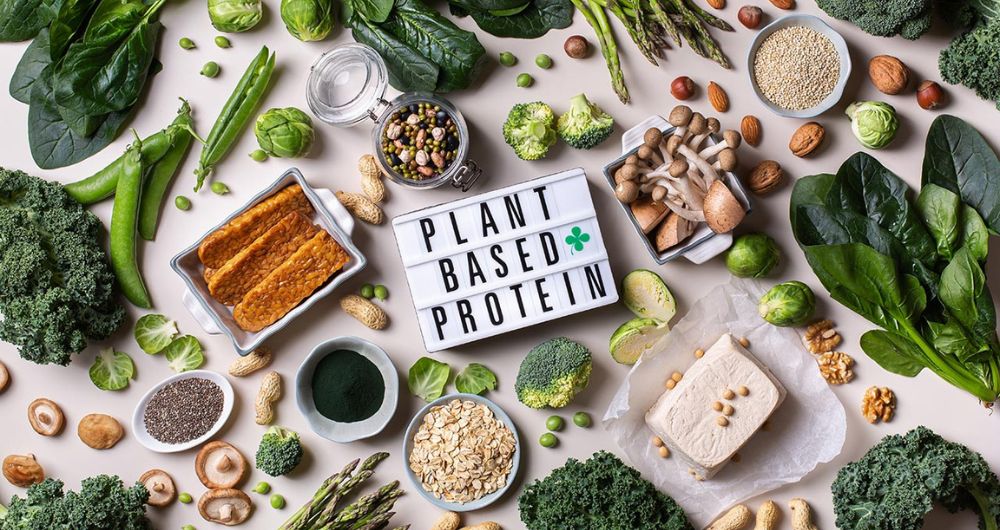
Why Plant-Based Protein is So Important
Animal vs. Plant-Based Protein: What’s the Difference?
The difference between animal and plant-based protein is simple. Animal-based protein is derived from animal products like whey, meat, eggs, and fish. Plant-based protein is derived from nuts, grains, fruits, beans, and vegetables. Meat and plant-based proteins also differ in their amino acid profiles. Most animal proteins contain all nine essential amino acids and are considered complete proteins. Most plant proteins are missing at least one essential amino acid and are considered incomplete. However, if you eat a variety of plant-based proteins, you will get a complete protein effect.
Protein is an essential structural component in the body. It is found in muscle, bone, skin, hair, and almost every other body part and tissue. It plays a crucial role in allowing oxygen to circulate throughout the body. Many athletes take a protein supplement as it helps improve their performance. It also aids with the building of lean muscle. But everyone should take protein to stay healthy and ensure important organs function properly. You can take several types of proteins, including animal and plant-based proteins. Plant-based proteins are popular as they are healthy, low-fat, and a big part of the environmental movement. Read on to find out why they are so important.
Plant-Protein Benefits
Plant protein offers many benefits, making it a preferred choice over animal protein. Here are some to consider:
A Sustainable Choice Experts have found that up to 75% of agricultural emissions come from producing animal products. Emissions are a main contributor to air pollution and climate change. Plant protein does not require as much energy or as many resources to produce. Plants also move nitrogen from the air into the soil, reducing the need for synthetic fertilizers. Therefore, plant-based protein is the more sustainable choice.
Good for Health Plants high in protein tend to contain other nutrients that are beneficial to health. They are rich in vitamins, minerals, and antioxidants that minimize the risk of disease. They are also low in calories and fat, which is conducive to weight loss. Plant-based foods have been shown to reduce the risk of cardiovascular disease and diabetes. People that eat vegan and vegetarian diets tend to live longer lives and deal with fewer health conditions. While meat offers its share of health benefits, certain meats are high in fat and cholesterol and may increase health risks.

95% of farm animals in the United States are raised on factory farms. These are often depressing; polluted industrial farms are set up to breed animals for food. They are exposed to all kinds of cruelty and suffering before being slaughtered. While many meat and dairy companies are working to improve farm conditions, no federal laws are in place to protect animals. States that have anti-cruelty laws rarely enforce them. Plant-based foods don’t involve animal cruelty or death, making them a good choice for animal lovers.
Greater Variety
The increased emphasis on the importance of plant-based foods has led manufacturers to produce more plant-based products. Today, you can enjoy a vegetarian version of just about any food. And that’s in addition to the usual variety of nuts, seeds, veggies, grains, soy, and more.
Budget Friendly
If you look at meat in a supermarket, you will find it’s very pricey. Plant-based foods, on the other hand, are very affordable. Beans, lentils, and peas are some of the most inexpensive foods in the market, packed with protein.
How Much Protein Should I Get Each Day?
The average adult should eat .36 grams of protein per pound of body weight. This equals about 56 grams daily for the average man and 46 grams for the average woman. However, if you are an athlete that’s constantly training, you may want to increase your protein consumption. Athletes may eat .5 to .9 grams of protein per pound of body weight.
Try EVR-Fit Edge Plant-Based Protein Shakes Many fitness enthusiasts drink protein shakes before a workout to get the most from their energy-boosting characteristics. Companies that are environmentally aware produce shakes that contain plant-based protein. They use non-animal sources for the protein they include in their powder. If you are looking for a plant-based protein powder you can trust, EVR-Fit Edge is recommended. Our products are all-natural, antioxidant-rich, and 100% delicious. They contain 5 grams of naturally occurring branched-chain amino acids (BCAAs). Protein is a necessary part of a healthy diet. Plant-based protein is preferred as it does not contribute to pollution, doesn’t involve animal cruelty, is affordable, and is packed with nutrients. Will you be adding it to your diet?
